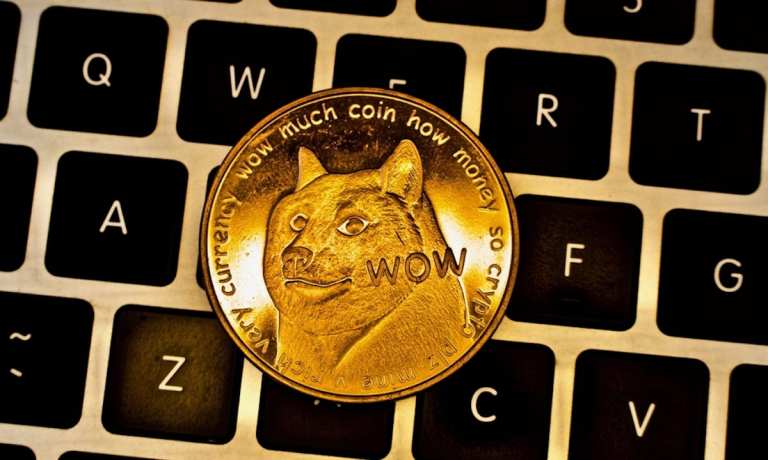Will The Dogecoin Frenzy Take A Bite Out Of Bitcoin?

Everyone loves a good dog story. 101 Dalmatians. Lassie. Lady and the Tramp.
In one of the latest installments in the Reddit vs. Wall Street saga – and in a nod to the power of online posting boards and the Wild West flavor of cryptocurrencies – a joke coin is making serious waves.
That would be Dogecoin, a cryptocurrency that CNBC notes had been “originally founded as a joke.” In the past few days, the crypto has surged hundreds of percentage points. That flurry of activity came after a posting on a Reddit board that holders should make the crypto like GameStop – which, of course, has also surged (actually whipsawed) in price over the last several trading sessions.
As a result, the recent pricing of Dogecoin, depending on the timeframe, has been around a nickel to seven cents, up from just a penny or two not all that long ago.
Take a step back and ponder for a minute: Dogecoin debuted in 2013, and exists basically as a joke that is a mashup of a dog meme and a play on bitcoin, which were two hot topics that year. So, it’s a (digital) coin with a dog logo on it.
Dogecoin shares a few characteristics with cryptos in general, even the big dog of the bunch, bitcoin (pun intended). Namely: It’s worth whatever you or someone else is willing to pay for it. But there’s no real underlying foundation to the price – and using it in commerce means using a LOT of it to pay for, well, anything. A Google search reveals that there are some businesses that accept Dogecoin, though they seem few and far between. Elon Musk is on board, and the Tesla founder has the power to send stocks and cryptos higher than a SpaceX launch with a tweet.
The frenzy has been such that Robinhood said it had restricted trading in bitcoin, Dogecoin and others. Per a CNBC report, the online brokerage said that “due to extraordinary market conditions, we’ve temporarily turned off instant buying power for crypto,” as noted in a statement emailed to the financial news site. “Customers can still use settled funds to buy crypto. We’ll keep monitoring market conditions and communicating with our customers.”
This means users can buy cryptos with funds already extant in accounts – and deposits take days to clear. Limiting the transactions allows for what might be termed a “cooling down” period, enabling more rational price discovery.
But with the restrictions come the inevitable questions over whether 1) people should be allowed to do what they want with their funds (i.e., fiat), even if it’s to essentially gamble indiscriminately (caveat emptor); and 2) whether cryptos should be allowed to soar and plummet unfettered.
The frenzied action this week may give a tailwind to regulatory scrutiny and to new parameters for how cryptos (distinct from digital fiat or stablecoins, which are pegged to underlying, real-world currencies, and thus have relative stability) can and should be used.
As noted in this space at the end of last year, the U.S. Treasury Department, through the U.S. Financial Enforcement Crimes Network (FinCEN), proposed a set of new rules that would boost information-gathering activities. The increased data collection and disclosed activities are aimed at transactions above $10,000 for non-wire transactions and $3,000 for wire transactions (which are the same thresholds for cash activities).
For now, the overarching theme is to stop illicit activity – and the same attempts to deter the anonymous murky doings of some holders may also deter the very people who are driving prices up and down. But might that make them desert cryptos? In other words, the craziness surrounding the joke coin Dogecoin has a ripple effect that reverberates to bitcoin (call it the tail that wags the dog, in a way), as the whole landscape gets a closer look.
Read More On Cryptocurrency:
- Cryptocurrency Exchange WazirX Loses $230 Million in Cyberattack
- Ripple CEO: US Crypto Rules Lag Amid ‘Interminable’ Lawsuits
- Report: State Street Considering Several Blockchain-Based Projects
- Web3 This Week: BlackRock CEO Calls Bitcoin ‘Legitimate,’ Mainstream Off-Ramps Grow